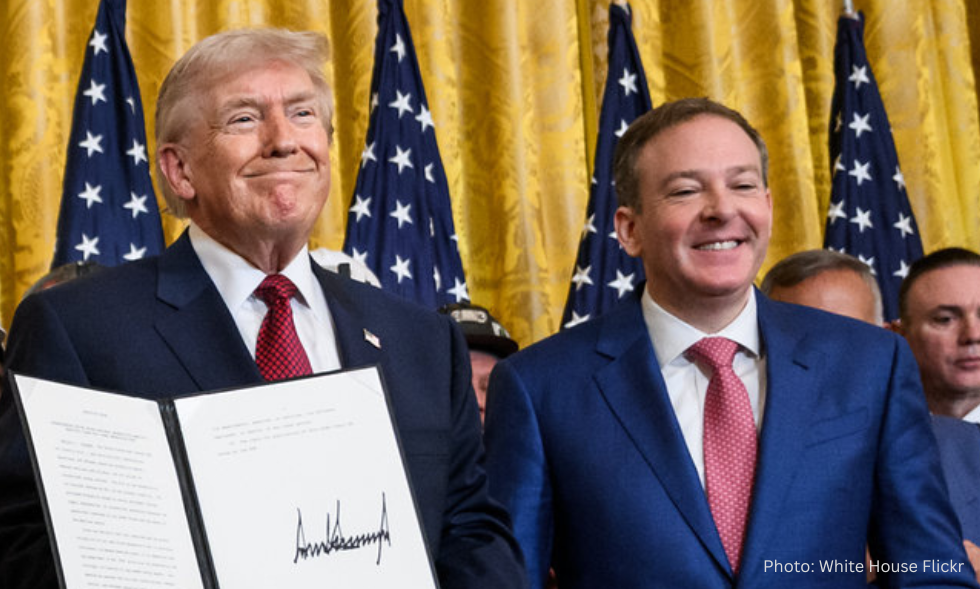Last October, The Heartland Institute presented its Heartland Liberty Prize to Al Salvi for his outstanding efforts to promote individual liberty. We were impressed by the young U.S. Senate candidate’s call for “less government and more freedom,” and for his insistence that government’s role be limited even on such tough issues as gun ownership.
You can imagine our disappointment, then, when Salvi reversed his position on gun ownership in an essay published on August 15 by the Chicago Sun-Times.
In his essay, titled “Why I Was Wrong About Guns,” Salvi blames his election defeat on his support of gun rights. “Forget the intellectual arguments about the role of the federal government,” he wrote. “Voters were right, I was wrong.” He goes on to endorse the Brady Bill and a ban on “assault weapons” and to oppose laws that would allow some people to legally carry concealed weapons.
Unlike Salvi, we cannot casually set aside “the intellectual arguments” about the pros and cons of gun control. We know, for example, that cities and states with gun control laws do not experience lower crime or murder rates than those without them. We know that the vast majority of criminals’ handguns — some 93 percent — are obtained from illegal sources, and therefore are not affected by waiting periods or outright bans. More gun control laws wouldn’t reduce violent crime.
We also know that every year, adults use guns to protect themselves about 2.5 million times. For every life lost due to a gun, as many as 65 lives are saved. Potential victims kill between 2,000 and 3,000 criminals and wound an additional 9,000 to 17,000 each year.
Handguns are a particularly valuable form of protection for women, who often are physically smaller than their attackers and less able to repel an attack using other kinds of weapons. Contrary to popular myth, criminals are able to take a gun away from an armed victim less than one percent of the time. Guns, in short, are needed for self-protection.
The Brady Bill, which requires mandatory background checks on would-be gun buyers, should not be an issue in Illinois politics, since such checks are already required under state law. We were astounded when anti-gun forces implied that Salvi’s election might mean the end of background checks in Illinois.
A ban on “assault weapons” would have no effect on violent crime because such weapons, when used for criminal purposes, are invariably purchased illegally. Legally owned machine guns, for example, have not been responsible for a single civilian death in the past fifty years. Moreover, military-style “assault weapons” of any kind are rarely used by criminals: from 1991 through 1993 in Chicago, a grand total of three homicides were perpetrated with an “assault weapon” out of a total of more than 2,500 homicides.
In his essay, Salvi says his support of gun rights was inconsistent with his support for “family values.” That is plausible only at the most superficial level. There is nothing “pro-family” about using gun laws to disarm single women and families, making them more likely to be victimized by urban predators. There is nothing “pro-family” about making our streets and neighborhoods less safe or by making criminals out of parents seeking to protect their families from thugs and gangs. By what logic do laws that violate our right to privacy and freedom from unreasonable searches and seizure become “pro-family”?
Salvi says he is considering making another run for the U.S. Senate. His essay makes clear that he is changing his public stance on gun laws in order to become more electable, not because he believes gun control is working where it has been tried, or that Second Amendment rights are no longer worthy of protection.
It is sad testimony to the public’s lack of understanding of gun issues, and to mass media’s misrepresentation of gun facts, that an intelligent and idealistic candidate such as Al Salvi must abandon positions he knows to be right in order to be electable. If this is indeed the “real world” of politics, then is it any wonder why government so frequently fails to solve social and economic problems?
The facts about gun control cited in this essay are documented in “Taking Aim at Gun Control,” by Daniel D. Polsby and Dennis Brennen.




